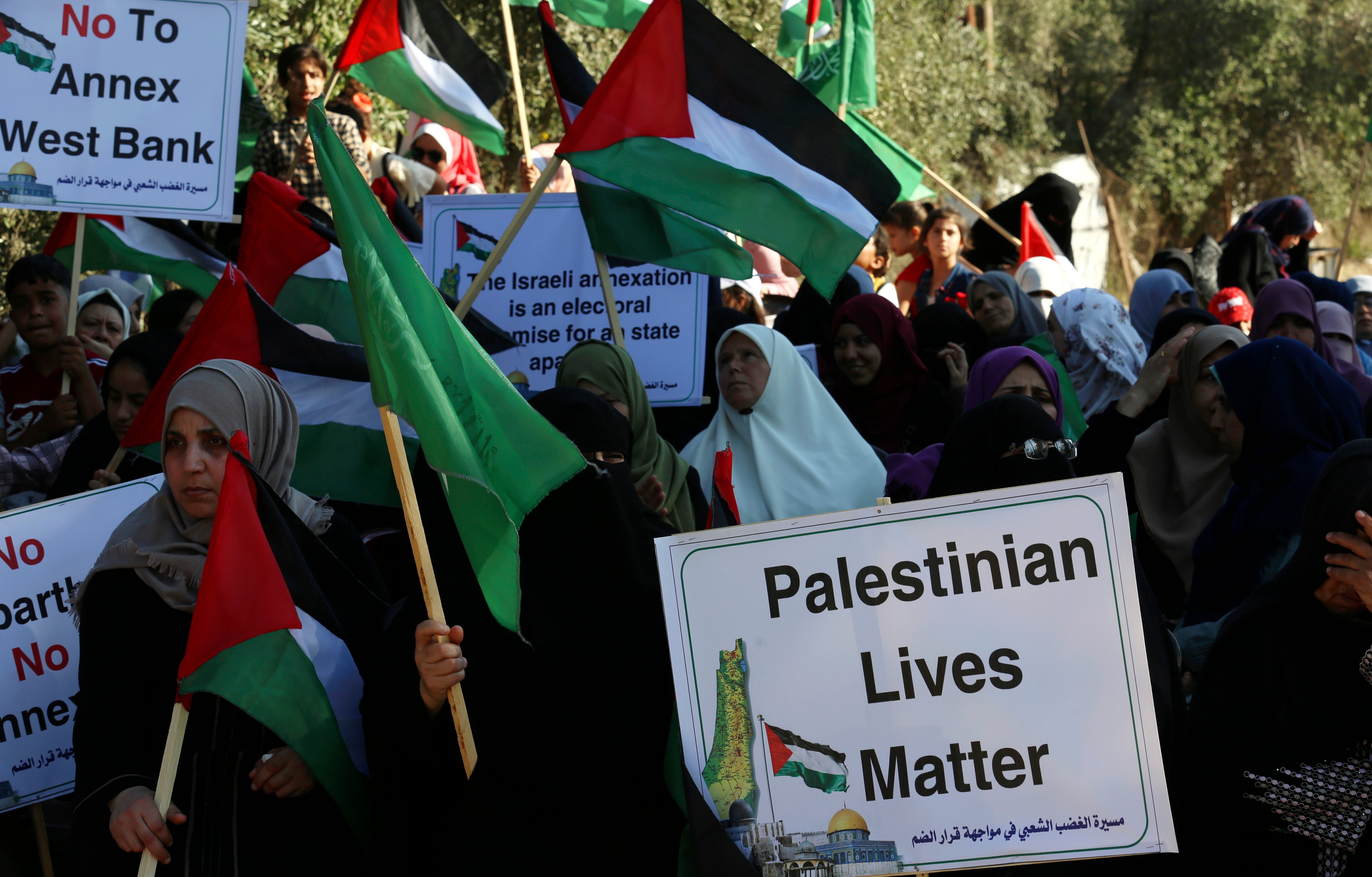Welcoming ICC ruling, Palestinian family hopes for justice
Palestinians have welcomed the International Criminal Court’s ruling extending its jurisdiction to the territories Israel captured in the 1967 Mideast war

Your support helps us to tell the story
From reproductive rights to climate change to Big Tech, The Independent is on the ground when the story is developing. Whether it's investigating the financials of Elon Musk's pro-Trump PAC or producing our latest documentary, 'The A Word', which shines a light on the American women fighting for reproductive rights, we know how important it is to parse out the facts from the messaging.
At such a critical moment in US history, we need reporters on the ground. Your donation allows us to keep sending journalists to speak to both sides of the story.
The Independent is trusted by Americans across the entire political spectrum. And unlike many other quality news outlets, we choose not to lock Americans out of our reporting and analysis with paywalls. We believe quality journalism should be available to everyone, paid for by those who can afford it.
Your support makes all the difference.The father of a Palestinian boy killed in an Israeli missile strike in 2014 expressed renewed hope for justice Saturday after the International Criminal Court paved the way for a possible war crimes probe into Israeli military actions.
The court ruled Friday that its jurisdiction extends to the territories occupied by Israel in the 1967 Mideast war, including the Gaza Strip where Subhi Bakr’s 10-year-old son Mohammed and three of the boy’s cousins were killed as they played soccer on a beach.
“Better late than never,” said Bakr, walking Saturday on the beach where the boys were killed during the 2014 war between Israel and Gaza’s rulers, the Islamic militant group Hamas
The ICC ruling opened the door for possible war crimes probes into Israeli military actions during that war and Israeli settlement construction on war-won land. Hamas could also come under scrutiny for indiscriminate rocket fire into civilian areas of Israel.
The international tribunal’s chief prosecutor, Fatou Bensouda, has yet to launch an official investigation. In 2019, Bensouda said there was a “reasonable basis” to open a war crimes probe, but she asked the court to determine whether she has territorial jurisdiction before proceeding. That came after the five-year preliminary inquiry to determine whether war crimes were committed during the 2014 fighting.
Hamas, which has ruled the Gaza Strip since 2007, welcomed the ICC’s finding, calling it “an important step” toward justice for the Palestinian people. Hazem Qassem, a Hamas spokesman, urged the court to take “practical measures on the ground” to hold Israel accountable for what he said were its crimes.
Hamas declined to comment on the possibility that it could also be the subject of any future probe.
Bakr, the bereaved father, is anxious to see quick action by the court.
“The most important thing for the investigation is to start; if it did not, then there is no justice in the world,” he said.
The story of the Bakr cousins, who were all between 10 and 11 years old, grabbed the world’s attention as many foreign journalists witnessed the 2014 incident from their seaside hotels. Images showed the children desperately running away from a jetty as the missile falls, and then the boys falling to the ground one after the other.
A year later, Israel exonerated itself and closed a military-led investigation without further measures, describing the deaths as “a tragic accident.” It added that the incident occurred in an area controlled by Hamas’ naval forces.
The closing of the Israeli probe led the Bakr family to seek justice from a higher body. Family members delivered their testimony to the ICC team during the preliminary inquiry that the prosecutor's office carried out from 2014 to 2019. They gave their testimonies via a conference link with the team which was based in The Hague.
Israel “can’t be the judge and executioner and I do not trust them. We need the international law to do justice for us,” Bakr said.
Despite criticism that Israel's investigations of wrongdoing by its troops are insufficient, experts say the country has a good chance of fending off ICC inquiries into its wartime practices.
When it comes to settlements, however, experts say Israel could have a difficult time defending its actions. International law forbids the transfer of a civilian population into occupied territory.
Israel captured the West Bank and east Jerusalem, along with Gaza, in the 1967 war. The Palestinians seek these territories for a future state. Some 700,000 Israelis live in settlements in the West Bank and east Jerusalem. The Palestinians and much of the international community view the settlements as illegal and an obstacle to peace.
On Friday, Israeli Prime Minister Benjamin Netanyahu denounced the court ruling as a “perversion of justice" and vowed to fight it.
The U.S., Israel’s closest ally, also said it opposed the decision.
Washington staunchly opposed the Palestinians' bid to join the court in 2015, as it does not consider the Palestinians a sovereign state and therefore not subject to the court's jurisdiction.
Palestinian expert Jamil Sarhan, head of the Independent Commission for Human Rights' Gaza office, was cautious about the ICC's ruling.
“Let’s wait for the investigation to begin and for its results," he wrote on Facebook, “because negative results for us could come by time, and we may not achieve what we are aspiring for.”